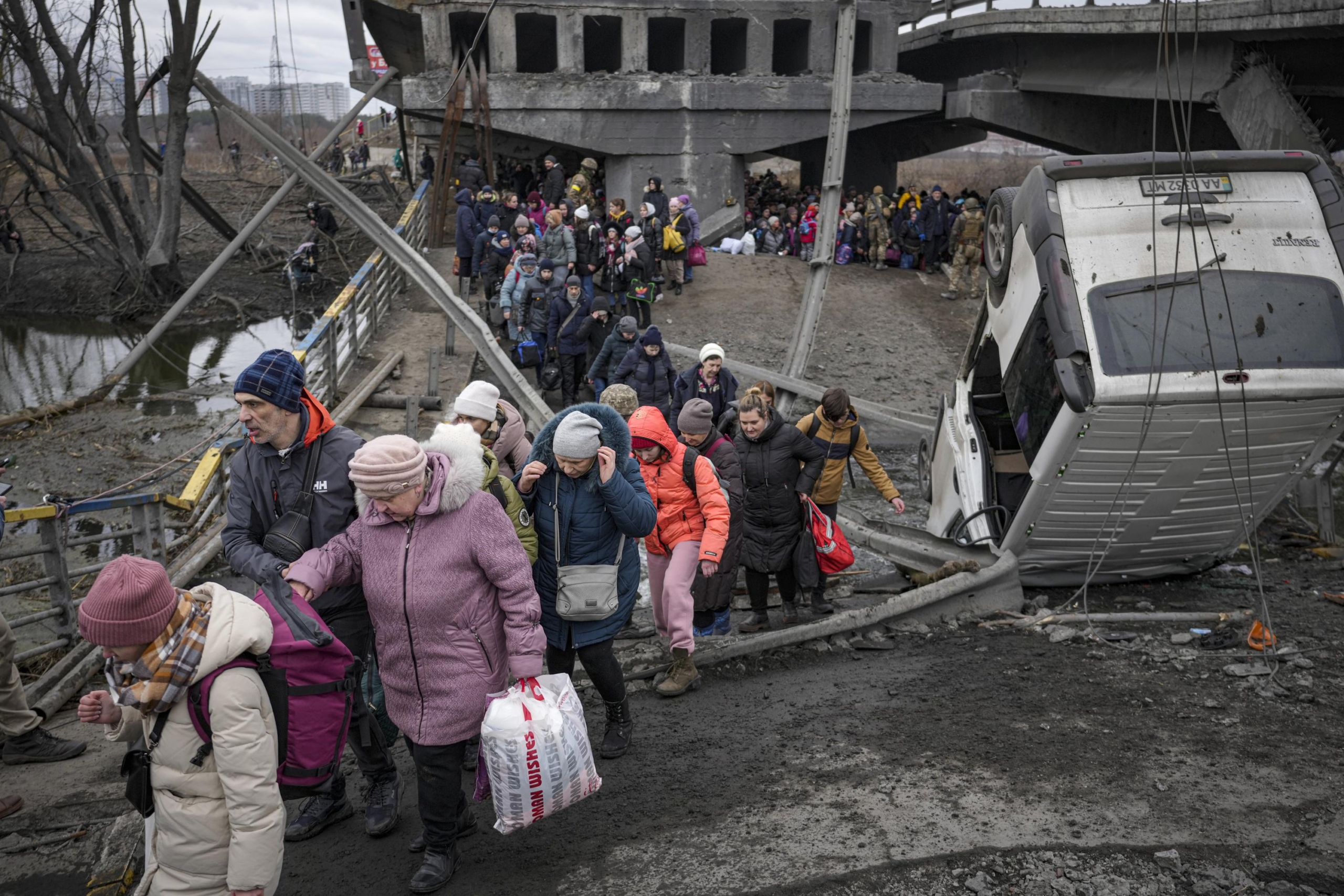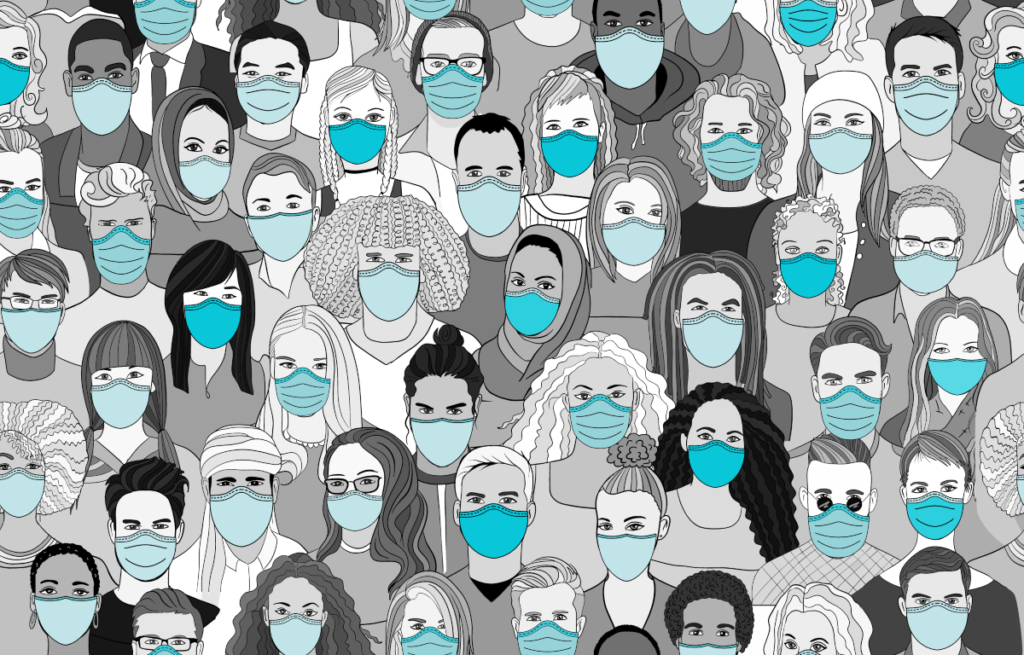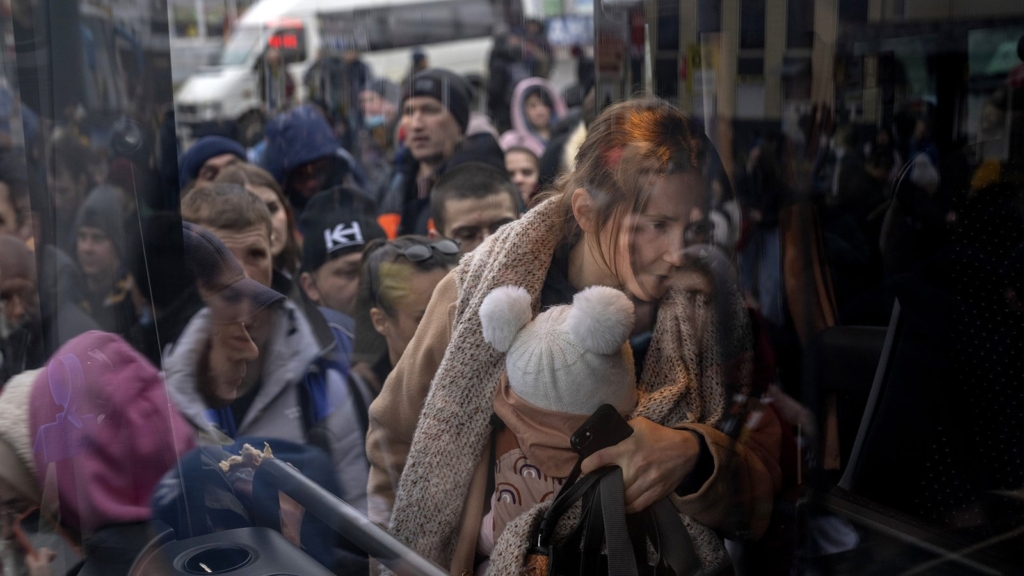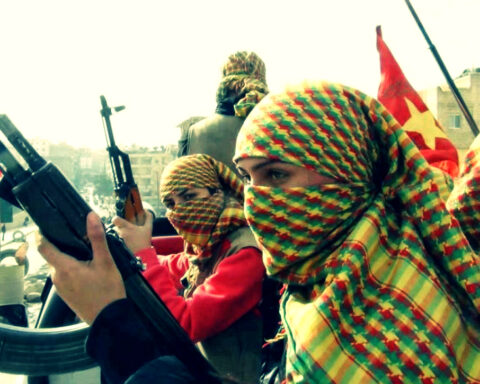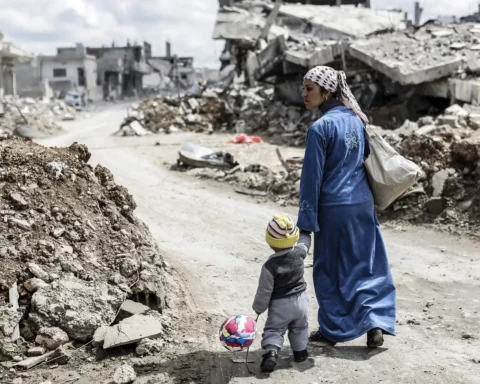The following interview was conducted by Tous Dehors on 18.03.2022. Translation in English by ENDNOTES
Could you start by telling us about your background before the war?
I originally come from Kharkiv which is in Eastern Ukraine, just a few miles from the border, but have spent the last few years studying in Lviv. All of my family and relatives are from Kharkiv as well, and before moving to Lviv I spoke Russian daily: Kharkiv is almost entirely Russian-speaking, but as we are seeing right now, this doesn’t necessarily translate to pro-Russian positions. I’m a computer science major: partly because this is the only way to earn non-poverty wages in Ukraine and you might be able to emigrate (in Ukraine the word equaly meaning “escape”) at some point; partly because I enjoy low-level programming and technology in general, and am interested in the ways capitalist modernity determines the development of technology, while allowing for more liberating uses.
Aside from this, I am interested in communism, and since trying to discern our communist horizons requires understanding capital and history in general, I am interested in the ways an emerging world market, a “second serfdom” and imperialist expansion have shaped the land I grew up in. I am trying to understand the ways in which we have been constituted, from the history of the slow and uneven capitalist modernization of the Saint Petersburg-Iuzovka-Odessa axis, to Soviet modernisations, and learning from the liberation movements that fought against the domination of the landlord, the capitalist and the bureaucrat.
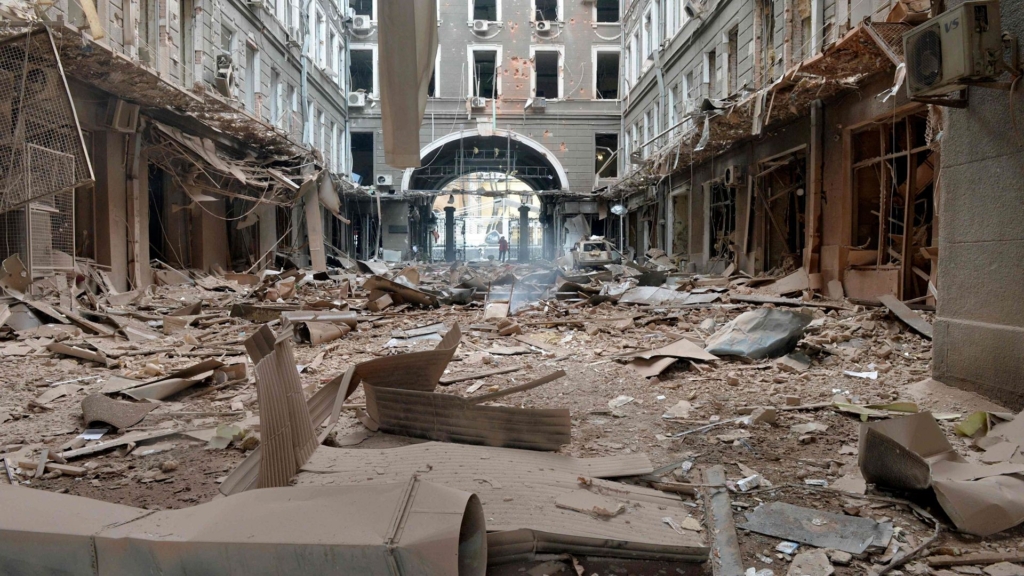
What was your reaction during the first days of the invasion? Were you surprised or did you expect a Russian military operation of this magnitude?
Although I did prepare for its eventuality (packed up the most basic things and my papers, ensured that my family in Kharkiv had evacuation plans) I did not think that a full-scale invasion was going to happen. I assumed that Russia was going to conduct a mass disinformation campaign the way it did in 2014 before the Crimea and Donbass invasions. However, as it eventually turned out, the secrecy of the invasion plans made these “propaganda indicators” unreliable, and Russian media instead had to rely on long-term disinformation campaigns that started in 2014. Checking the Russian state media on a daily basis and not seeing any significant uptick in provocations, I thought that the troops stationed near the border might be used as leverage to get Ukraine and NATO to negotiate terms more acceptable to Russia. Overall, there were a few people that overreacted to every single new satellite photo of Russian military bases, but the majority became used to the fact that Russia has been waging a war in the east, and has always wanted much more.
But more fundamentally, I think nobody could have been prepared for what was to come. Even if you pointed out that the Russian invasion has already been going on for eight years, even if you saw the daily life governed by the accumulation of blood-soaked commodities and imperial ambitions as an ongoing civil war, nothing could prepare you for that early morning when the air raid sirens finally burst through the fog of the dream. First, words penetrated my half-conscious mind and exploded inside, as I wasn’t yet sure about the scale of things. “Every military airport has been destroyed”, I heard and remembered all the maps with red dots surrounding the border, “tanks are in the cities” was still ringing in my head as I was quickly packing up my things. My body refused to cooperate, every single sound was intensified tenfold, and I couldn’t sit down for a second, scrolling through the news and texting friends as I was pacing around the apartment. This is the state I spent the next few days in, but eventually the Russian advance slowed down, and many people calmed down with it.
My family was lucky enough to drive out of Kharkiv in the early morning after the first sirens, and after my friends crossed the Polish border, I joined my family and we are still in Western Ukraine, in relative safety, together with some relatives that were able to evacuate from Kharkiv a few days later. Since I’m draft-eligible, staying in Ukraine is the only option for me. We are not yet sure about our further actions, this depends on how long this war is going to last and whether we’ll have a home to return to.
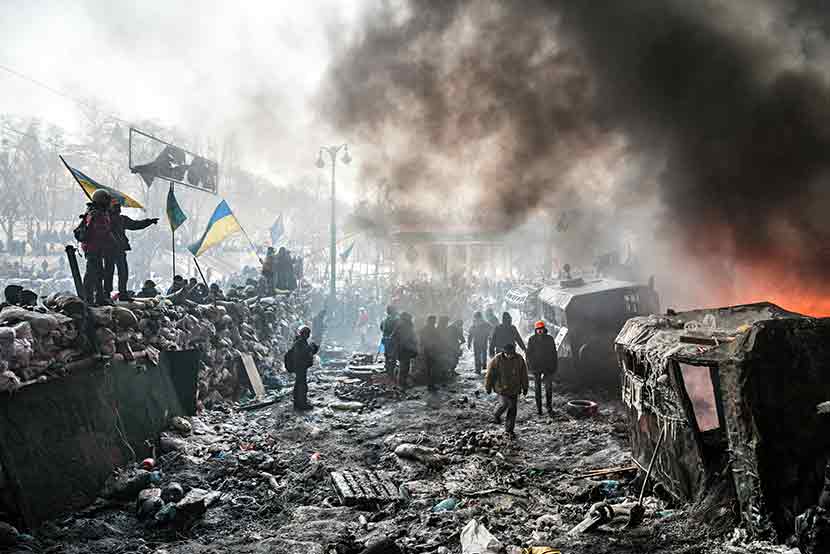
One could say that a war marks a stop in the normal course of life and the emergence of the exception. In your opinion, to what extent is the current situation changing Ukrainian society? Are the old political and social divisions being maintained and intensified? Or on the contrary, are we witnessing a rapid restructuring along new lines of division?
Even those who haven’t learned the lesson that the state of emergency is the rule are seeing an obvious intensification of the existing lines of division. It is no accident that the people who remained in the occupied and encircled cities are disproportionately poor, and often old, although there are significant efforts to paint service workers putting out the fires and cleaning up the streets, all under non-stop shelling, as patriotic heroes. Elsewhere, people are sleeping in the fields due to huge queues at the borders and some are rejected outright because they have the misfortune of coming from Africa or the Middle East. Many have decided to abandon their work, so as the government tries to motivate people in the “peaceful” regions to return to normality, previously “necessary” and “logical” structures and apparatuses have become increasingly harmful.
It’s hard to deny that the current situation definitely serves the reactionary forces: the militarised nationalist groups are receiving more support and are increasingly “mainstream”, and progressive liberals forgot about their “struggles” and threw all the support behind the state apparatus. But I am also seeing many opportunities for radicalization as the army and the police, by conscripting people and not allowing men out of the country, by arresting and killing looters, are exposing their interest in the protection of the law itself, not in our survival. Once you understand that the system we live in is the cause of this horror, that it feeds from this violence, once you feel it with your own skin, it’s really hard to listen to people painting Ukrainian suffering as permanent and suggesting political half-measures.
The Ukrainian government and the media paint the invasion as a “natural”, mythical occurrence. The minister of health easily transitioned from reporting the numbers of people infected and killed by Covid, to reporting the numbers of murdered children. The war and the pandemic are thus divorced from normality, their causes and consequences from the constitution of the state itself and the world at large: these are uncontrollable cataclysms. The mass murder of the Ukrainian civilian population is described as non-political, it originates from an inhuman, genetic and contagious population of Russian “orcs”. The Ukrainian state is merely trying to survive here, and it is treason to not throw your body to protect it.
What further characterises the present situation, after an intentional misattribution of its causes (“war can’t potentially be a part of normality, fascism isn’t a constant in a liberal democracy, it’s outside of it”) is the total absence of solutions among nationalists and liberals. Calls for reparations (themselves just disguised calls for mass genocide of “guilty” Russians), calls for Putin to be assassinated, show that the imperial layout of the world is expected to be eternal, we can only hope for slight redistributions. Financial help for Ukraine is important, but expectations of Ukraine experiencing an economic revival due to “high patriotism” and “national unity” after the war are groundless. These are all simply non-solutions since this war is inextricably bound up with capital and isn’t just an error in its normal functioning. And while a peace treaty or Putin’s death might stop this war here and now, they won’t prevent Russia from policing the post-USSR region in the future.
Only a mass movement on both sides of the frontline and in the armies themselves, originating from a spark we might not be able to expect right now, will be able to put a stop to the world which has brought war so close to the imperial core for the first time in years. I reject the categories of innocence and guilt that serve to justify xenophobia and genocide, we should instead seek to expand the islands of civilian resistance and construct universalist communities. Imperialism can’t be separated from the economic nationalism driving it, and the management of populations which abandons millions to death from Covid, war, or climate change is the mode of governance under which we live, and both can only be overcome in a revolution constructing a radically new world.
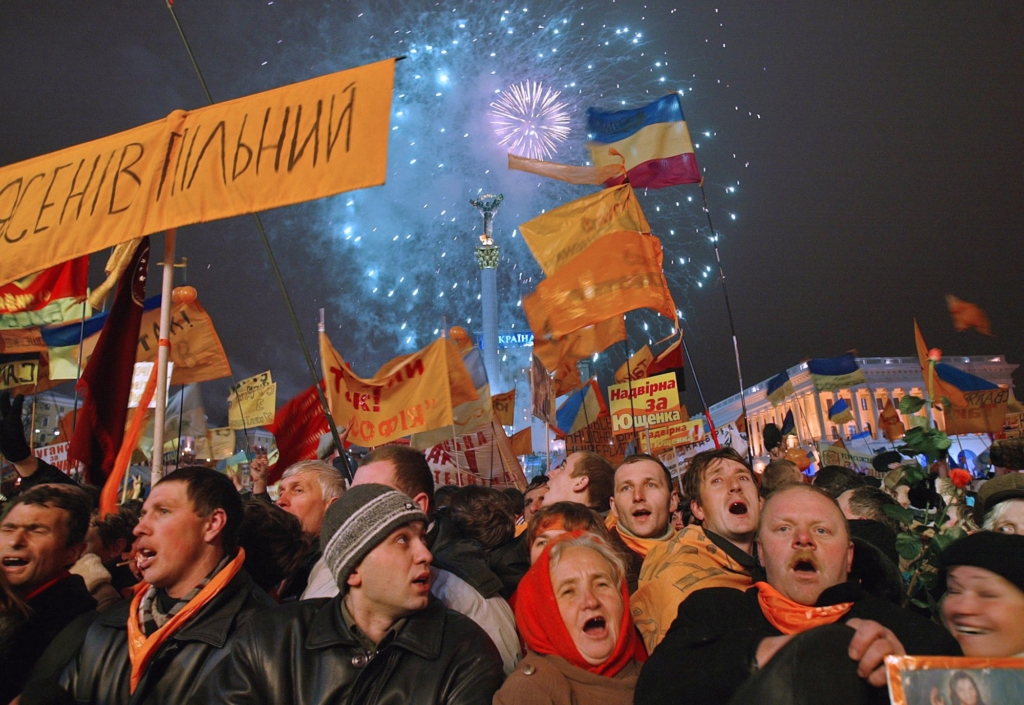
My question may seem naive to you, but what remains of the Euromaidan movement of 2013? Has the bottom-up mobilisation of a growing percent of the population reactivated it in some way? The war of annexation between Russia and Ukraine is embedded in earlier events. With the Orange Revolution in 2004, and then with Maïdan in 2014, Ukraine has witnessed two consequent movements that led to the fall of the pro-Russian regime. Could you quickly go back over the history of Ukrainian social movements of the last two decades and in particular the ways in which Putin’s regime firmly opposed them?
I don’t think that the Euromaidan movement should be the starting point to analyse the current situation. The 2004 protests are still trapped in the role of a “progressive anti-corruption movement”. What is today called the “Orange Revolution” also mobilised nationalist tropes in an attempt to define a distinct Ukrainian identity. Moreover, it deeply embedded the idea that corruption is the cause of Ukrainian stagnation, rather than simply one of the symptoms of low profitability in a post-socialist state. I think any left movement that considers corruption to be the main target of its struggle is fighting an already lost battle on the enemy’s terrain.
After a relatively peaceful Orange Revolution that was always only directed at recognizing electoral results, the winter events of 2013-14 have shown that there can be a mass movement capable of fighting the police in the post-USSR region. Euromaidan itself cannot be easily classified. The claims of the protest were multiple and the very conflictual character of the movement was intensified in step with the increasingly violent police repression of demonstrations. The protesters were not all right-wing militants, but one cannot deny that many of them ended up agreeing with relatively small nazi groups and that they were influenced by their tactics in the street, as well as their discourse.
After Maidan, right-wing rhetoric continued to move into the mainstream, all the more as many liberals found it appropriate to proudly “reappropriate” Putin’s claims about Ukraine being full of “Bandera fans”. I’m relatively pessimistic as to the prospects of structures of solidarity emerging after the uprising. Post-Maidan history is a great example of the manner in which right-wing militias have been able to consolidate their power in the streets, establishing strong connections to and even a presence within the army, police and the state – while the various anarchist groups have slowly disappeared or even turned patriotic themselves.
Maidan and the subsequent Russian invasion in the Donbass lead to the emergence of a giant volunteer network. Then as now, political initiatives directed towards the strengthening of the military are seen as extremely popular. These often apolitical networks have ended up equipping right-wing battalions, which have set up their own training centres. They also actively recruit young people, all too eager to beat up queer people in the streets.
What you won’t see in any of today’s war coverage, always praising Ukrainian military performance, and what people generally don’t understand, is that the training, maintenance and arming of the Ukrainian army, along with the IMF’s credit requirements, are the structural cause behind the gutting of hospitals, schools and universities, as well as poverty-level pensions and the lack of public sector wage increases. Austerity is the future that awaits Ukraine if it’s ever accepted into the EU.
After Maidan, radical political action has been constrained to either participation in one of the army-adjacent militias or struggles for rights. Without abandoning the most basic radical positions of helping refugees as well as Ukrainian and Russian dissidents, radicals today must work to break the image of a “patriotic war” that the state has constructed. With this war and its aftermath, we will see great repression on both sides of the border, and it is ultimately the refugees burning through their savings and collecting ever greater debts who will bear the brunt of it. The attempt to cling to the remnants of law and capital even as the tanks are rolling in only further exposes the fact that human reproduction remains a byproduct of the reproduction of capital.
Originally published: https://tousdehors.net/Lettres-d-Ukraine
